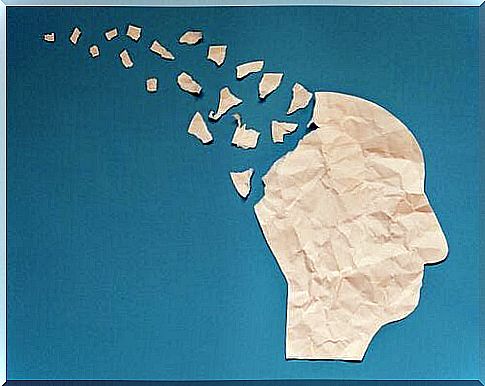The 5 Keys To Preventing Digital Dementia

It is impossible to talk about digital dementia without talking about the German psychiatrist Manfred Spitzer. Thanks to his work, we now know that digital dementia is the reduction of our cognitive abilities due to the misuse of new technology. This type of dementia is similar to age-related dementia.
Twenty years ago, this type of research would have been written off as ridiculous. How could humans be dominated by technology? People believed that a social animal with the capacity for reasoning and innovation would never sink so low. But our misuse of technology has consequences that we are just now beginning to see. In fact, the younger generation is more likely to suffer from short-term memory problems.
Spitzer claims that the abuse of new technology reduces cognitive performance and memory. In addition, he emphasizes that the brain functions more or less like a muscle. If you use it, it will be stronger. If you do not use it, it will atrophy. That is why it is so important to stimulate and train the brain.

How to prevent digital dementia?
We live in a hyperconnected world. Young children use smartphones and computers all the time. They are quick to google any doubts or questions they have without doing anything to reflect or find out for themselves. This is why digital dementia is on the rise. But what can we do about it?
Set time limits
Define a specific schedule for using your phone. If you need it for work, try to respect your free time (which is also very important). For example, try taking a break to use your phone right after dinner or when you have completed all your waiting tasks.
Don’t forget to spend time with family, friends or your partner. Never give up time with them to spend more time on social networks. That does not mean you can not check them. Just make sure you use them in moderation. It’s about balance.
Find a hobby
Learn to play an instrument, learn a new language, or start practicing. Find a healthy pastime that will help you forget about the digital world. If you can, find a hobby that allows you to think and use your analytical skills.
Using “brain training” games on your smartphone does not count! Focus on the real world and on exercises you can do with pencil and paper. Get family and friends together and spend a nice evening with them.

Get out
Go out and enjoy nature. It does not matter if it is cold or rainy since each season has something great to offer. If you live in the city, there are probably many parks and trails with walking opportunities. Doing this is great for your lungs, but more importantly it is good for your brain.
You may not want to do it at first, but try to make it a habit. Little by little, your body and your brain will get used to it, and you look forward to being outside, in the rain or sun.
Force yourself to think to prevent digital dementia
Next time you want to take the simple solution, you need to stop yourself. Ask yourself how you would have done without the internet. You will realize that there are many options for using one or another device.
Be introspective and reflect. Is it possible to get an answer without searching for it online? Wouldn’t it be better to read a book now and then? Do not let your brain get rusty! Life expectancy is constantly increasing. Thus, we must keep the brain as active as possible.

Choose books instead of TV series
Watching TV is a fun hobby, but it should not be your only activity. If you like to escape from everyday life and immerse yourself in stories, try to pick up a book. It is better for your eyes and imagination.
Literature helps to increase your creativity. As a result, you develop a part of your brain that is often inactive. Letting your inner child flourish is always a good option.
Digital dementia is a problem that affects more and more people every day. It’s easy to fight, but you have to do your part. Anyone you ask will tell you that all they want to do after a hard day’s work is lie down on the couch and play with the phone or watch a movie.
Routine use of new technology can be dangerous. Try to spend at least one hour a day outdoors. Your body and your brain will thank you for it. Do not forget that limiting the use of technology will not isolate you from other people if you do not want it to. After all, real life is much more interesting than digital.









